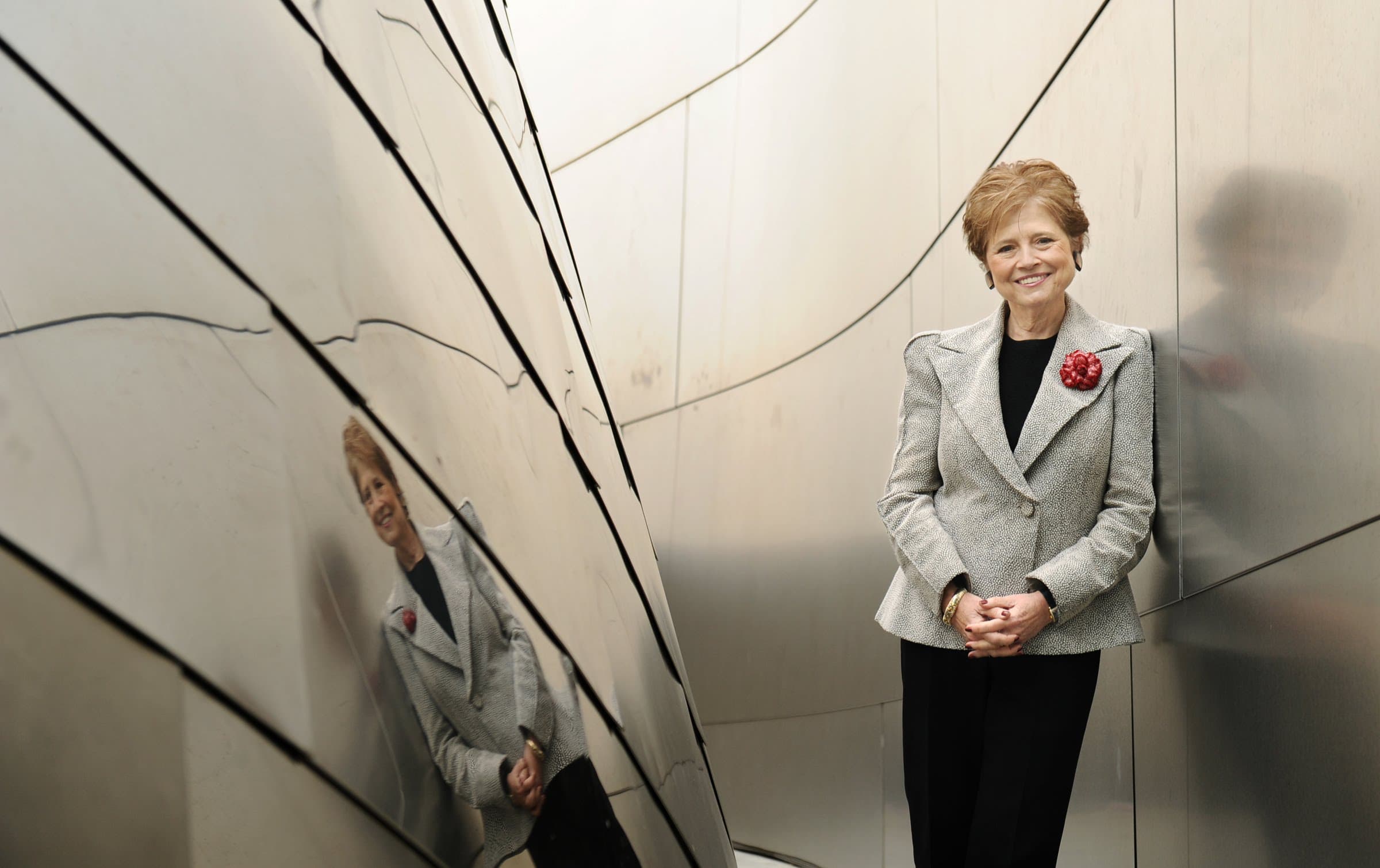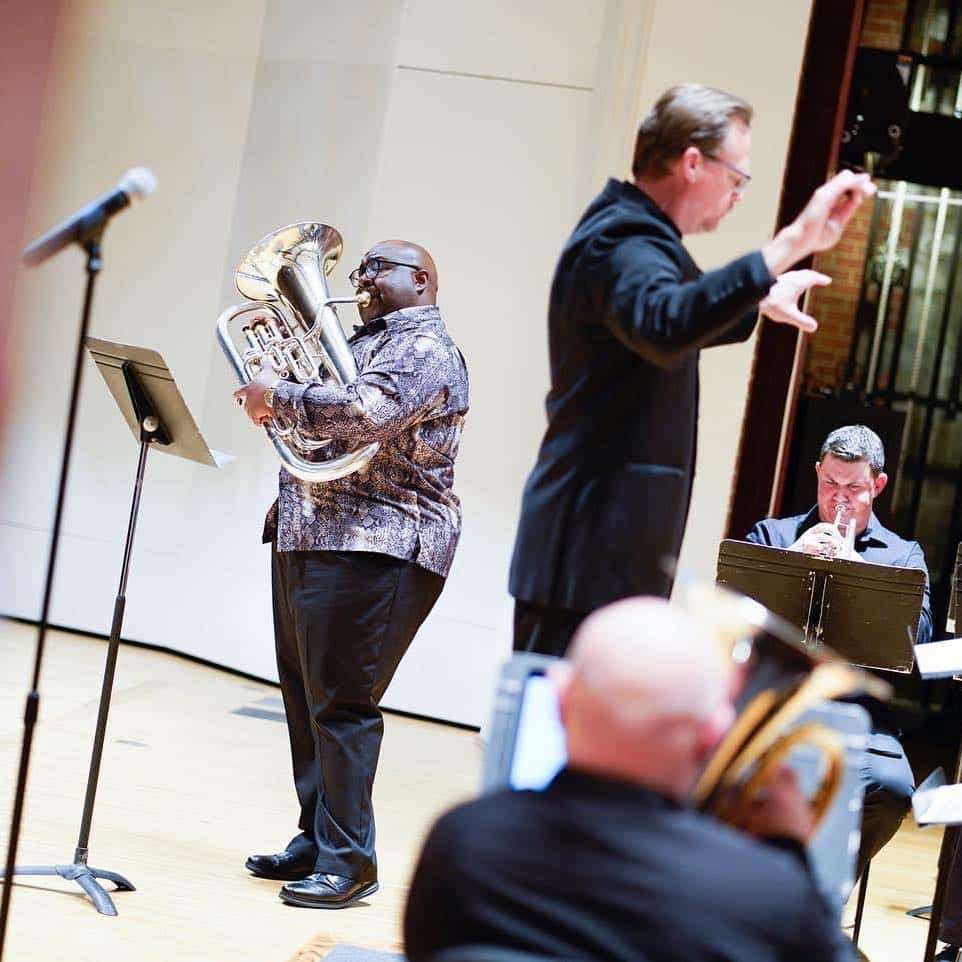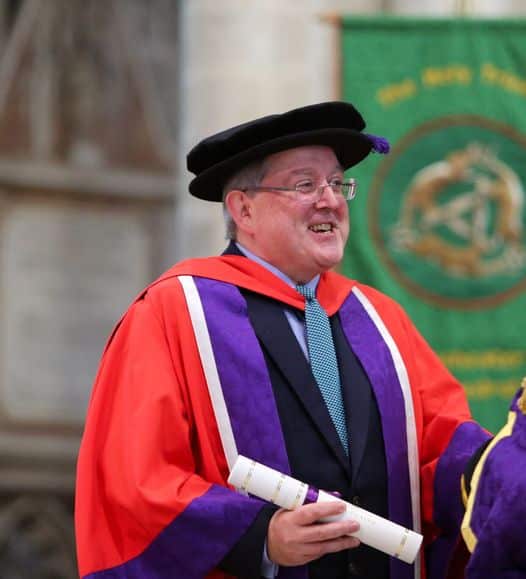Breaking: Two new jobs for Deborah Borda
NewsThe former president of the Los Angeles and New York philharmonic orchestras has been named Non-Executive Chair of the London-based Intermusica artists agency.
She is also about to launch BordaArts, a company dedicated to improving executive leadership in classical music.
Borda, 74, is not done yet.
UPDATE: PRESS RELEASE
Legendary arts leader Deborah Borda has announced the establishment of BordaArts, a
consulting firm dedicated to developing innovative leadership for the future. She
continues to serve the New York Philharmonic as an executive advisor. Among her first
collaborators are the executive search and leadership consulting firm Aspen Leadership
Group and international artist management company Intermusica, where she will serve
as Non-Executive Chair.
Borda has worked tirelessly for decades to extend the artistic, commercial, and
technological boundaries of what the performing arts can be in the modern world.
Motivated by a desire to foster a love of music, Borda has distinguished herself by
consistently inspiring strong leadership and cooperation among administrators, soloists,boards, and orchestra musicians. Her effect on institutions is renowned: from the LA Philharmonic, where her deep creative partnership with Music Directors Esa-Pekka Salonen and Gustavo Dudamel and the establishment of Youth Orchestra Los Angeles (YOLA) reshaped the organization into a powerhouse of classical music and community education; to the New York Philharmonic, where she breathed new life into both the orchestra and its concert hall.
Deborah Borda served as Executive Director of the New York Philharmonic from 1991–
2000; she returned in 2017, serving as President & CEO until June 2023. A leader whose
work revitalized and transformed the orchestra—as well as its home, David Geffen Hall—
Borda continues to work with the New York Philharmonic as an executive advisor, a
position she assumed in July 2023. “I am thrilled to continue my partnerships with Gary
Ginstling and the board,” says Borda. “Establishing a process to select new leadership
with a focus on succession planning and transition is critical to the success of an
organization. The New York Philharmonic, together with the board, created a succession
planning committee rather than a search committee in order to identify our needs and
goals for the future, and guide our search and selection accordingly. We also created
space for a meaningful transition period. This is an example of a creative and pragmatic
leadership model of which I am proud.”
Performing arts organizations have long sought Borda’s advice as they build
administrative and artistic teams. With the establishment of BordaArts and its new
partnership with Aspen Leadership Group (ALG), Borda solidifies those channels and
streamlines the process, bringing her relationships and expertise directly to institutions
and prospective candidates. In partnership with ALG, BordaArts aims to enact
generational change through thoughtful and thorough executive placements and
succession planning. “Above all, I am interested in creating a lasting culture of leadership,
one that will continue to be productive for decades to come,” says Borda. “A CEO’s first
year is one of the most pivotal moments in their tenure. I am eager to begin working
together with ALG, having long admired their philosophy of building institutions through
an integrated approach to leadership, ensuring that once a candidate is chosen, that
individual has an optimal opportunity for impact.”
Intermusica has appointed Deborah Borda as Non-Executive Chair of their international
artist management company, a position she will assume in January 2024. Intermusica is
an award-winning creative agency founded by Stephen Lumsden. Borda succeeds
incumbent Chair, Martijn Sanders, who retires from the board after sixteen years. As an
insider with an outsider’s perspective, Borda will be integral in shaping Intermusica’s vision and goals, and providing strategic guidance to the Board of Directors. “As Non-Executive Chair,” says Borda, “I will be supporting another dimension of performing arts:
the next generation of artists and arts leaders. Throughout my career, I have seen how
vital strong management is in developing an artist’s early career—and, by extension, their
future. Intermusica is already highly regarded as one of the best agencies in the industry.
Together, we will make it a destination for the artists who will shape the future of our
community—and the managers who inspire them.”






Ouah! It is a game changers appointment. Deborah is a phenomenon and a incredible mentor. I hope she continues for years to come. Bravi!
Just as long as she doesn’t advise on design choices. The “new” David Geffen Hall lobby looks like an airport lounge, the seat upholstery in the hall is atrocious, the pointless “light show” at the top of the concerts doesn’t always work, and the carpet in the lobby is puke-worthy.
Deborah is a great talent and has made a positive difference in our field . Best to her.
Feel free to correct me as I am not familar with DB’s various accomplishments in the world of classical music. What I recall reading is that DB did not like that Kurt Mazur was not the attend donor events/parties to socialize with the public type of music director. And this was, at least in part, her reasoning for him not continuing as the music director of the NYP. And, that it was NOT his choice to leave. Is this fact or editorial comments in Newspaper and online articles?
When I hear a performance on public radio of an orchestra being conducted by KM which I find so wonderful (particularly Leipzig
Gewandhaus) I think why did he not stay on in NY at least another few years as music director and is DB a contributing reason as to why he did not. I apologize if anyone considers this an inappropriate question.
Masur said publicly more than once that his departure was not his decision.
I had not heard that a reluctance to meet and socialize with donors was a reason for his dismissal, but doing that socializing is pretty much a job requirement for music directors in the United States, where orchestras have very little public subsidy and are very dependent on donations from the wealthy.
So, in the US, an unwillingness to meet and socialize with donors is, in effect, an unwillingness to do an important part of the job and a danger to the orchestra’s ability to thrive — which is to say, it’s a fair reason not to renew the contract of a music director.
The most charitable way of looking at her legacy is to say that Deborah Borda is an institutionalist. In the rotten world of American politics this is now thought of as a good thing – i.e. behavior in accordance with norms and customs, leaving ego at the door, etc. However, in the arts I am not so sure if this is a good thing. Borda’s institutionalism has left New York with a flashy, but acoustically and visually unsatisfying concert hall, and a wildly overhyped and overrated music director (The Dude). What artistic achievements took place in New York on her watch?
Perhaps an orchestra that made it through the pandemic relatively unscathed?
I understand that not everyone agrees, but most people who care (including me) think that the Philharmonic’s concert hall, though not perfect, is far more acoustically and visually satisfying than it has ever been in the past. For the first time in its history, it is something more than a barely acceptable concert hall, and it’s no longer a hindrance to the orchestra.
Borda brought in the large donations that made the venue’s reconstruction possible, and it was completed under budget and far ahead of schedule.
Many people do find Dudamel overrated, but he has a demonstrated record in Los Angeles of attracting appreciative audiences and positive attention in the wider community, both important in the competitive musical environment in New York City. He also has a demonstrated record of performing new and recent music that audiences actually want to come hear, which is important in this competitive environment as well. Crucially, Dudamel has the respect and affection of the New York Philharmonic musicians (who broke into applause when told of his appointment), and they have been known for at least 70 years as a notoriously cantankerous and difficult-to-please bunch. (I even heard about their reputation in my high school band down in the Deep South.)
So, from an institutional (yes) point of view, Dudamel is a very attractive person to have as a music director. He could go to almost any orchestra he wanted, and New York and the Philharmonic had little to offer him that he didn’t already have in Los Angeles or could get elsewhere; Borda’s luring him to the NY Phil is a real accomplishment.
Artistically, while the Philharmonic has not been at its best when conducted by Jaap van Zweden (whom Borda did not recruit), it has been sounding very good indeed under a number of guest conductors. And it has also — probably more than at any time at least since Bernstein’s tenure — been performing contemporary music that (at least in some cases) really appeals to and excites audiences. (Most notably, works by the Bang on a Can composers Julia Wolfe and David Lang.) And when the new pieces aren’t a success, at least they’ve usually been ideas that seemed worth a try. Borda has made that possible — in particular, by preventing the kind of interference from the Board that kept Alan Gilbert from attempting everything that he wanted to try.